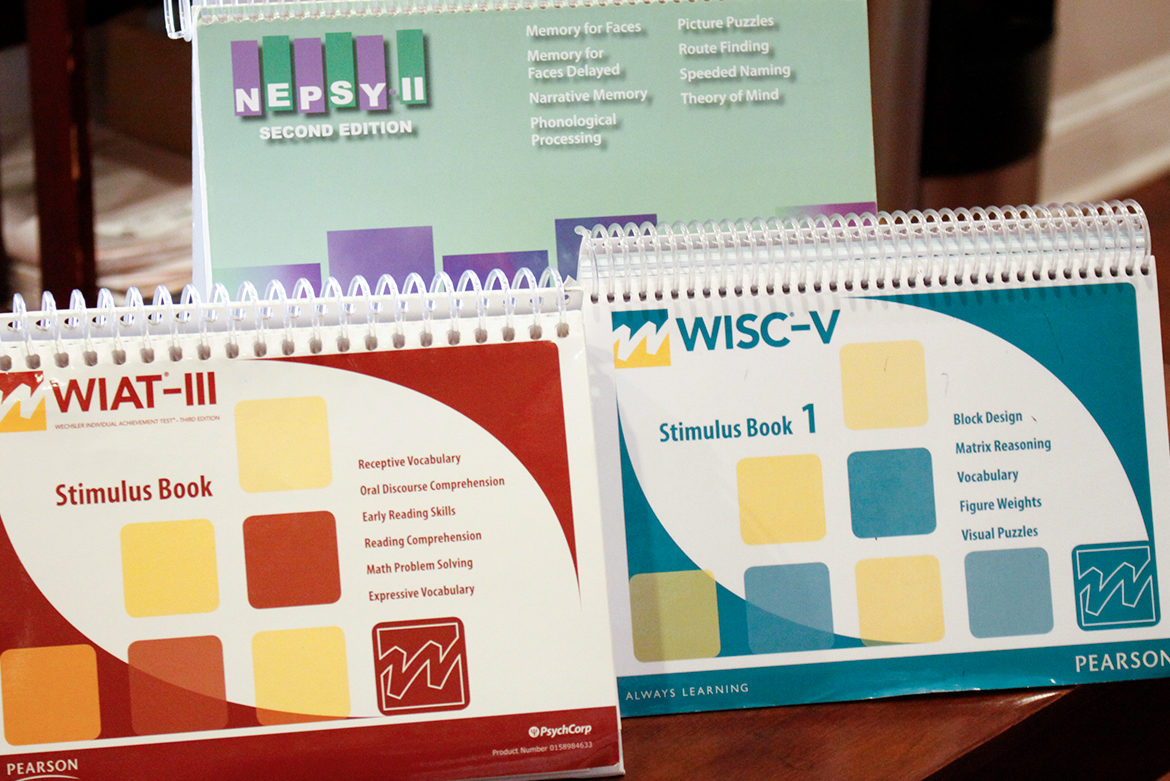A developmental assessment investigates overall functioning in younger children and compares their development in language, behaviour, motor, independent living skills, social skills and play to others the same age. This can be helpful in diagnosing developmental delays, and conditions such as autism and ADHD in younger children.


WE ARE HERE TO HELP
We Offer Assessments
What are the steps?
Step 1 – INTAKE
The process begins with an initial collection of background information from the child’s parent / caregiver, which your psychologist will review to help plan the assessment process. The process consists of utilizing a variety different tools and forms based on the symptoms and signs that lead to considering an assessment in the first place, as well as further testing where necessary based on the initial in-office observation and testing. Based on the information you share, the professional may direct you to a different type of specialist.
Step 2 – ASSESSMENT
The assessment is the process of gathering all the relevant information through forms, observations, interviews as well as a few hours of the assessor working directly with your child. Prior to the in-office observation you will receive some forms which must be completed and submitted at least one (1) week prior to your scheduled in-office session.
IN-OFFICE: At the beginning of the in-office session you will be able to clarify your concerns and ask questions. The assessor will also clarify any questions or concerns that came up from all the information submitted via forms. This will be followed by a period of observation and testing designed specifically for the client. The time frame varies from 2 – 4 hours based on the tools and tests that need to be done.
Step 3 – FEEDBACK
Once the assessment is completed, a report will be drafted and sent for your review. You will be invited to a feedback session to discuss findings and next steps. The feedback session to an opportunity for you to ask questions to ensure you understand what the findings mean for your child and your family. Given the age of the child and the nature of the concern, the assessor can also provide direct, private feedback to the child with parental consent. A comprehensive written report detailing the concerns, the assessment results and the recommendations will also be provided. Additional feedback, summaries or consultations with relevant agencies (e.g. schools) can be arranged.




WE ARE HERE TO HELP
Types of Assessments
This assessment is for investigation factors that may be contributing to the client’s challenges in school and learning. It can be useful for understanding learning strengths and weaknesses, diagnosing learning disabilities or intellectual disabilities, as well as emotional or behavioural factors that may be affecting the client’s functioning. It includes an assessment of cognitive ability (IQ), academic skills (pre-requisite skills for reading, writing and math, current skill levels, academic fluency), and socioemotional functioning. Measures for other areas of functioning may be included depending on the client’s concerns.
This psychoeducational assessment is to determine client qualification for exam accommodations (e.g., extra-time; extended exam breaks) and submission of a formal request to PEP, CSEC or CAPE governing bodies. Approval or denial of request is the sole responsibility of the test examining bodies.
This diagnostic assessment incudes the psychoeducational assessment, along with an ADHD- specific assessment (i.e. interviews, measures, and observations of the client in an academic setting). An evaluation of learning, emotional and behavioural concerns that commonly present with ADHD will also be included.
This diagnostic assessment includes the psychoeducational testing, along with an ASD-specific assessment (i.e., interviews, measures, and reports/observations of the client in different contexts). An evaluation of learning, emotional and behavioural concerns that commonly present in persons with ASD will also be included.
This assessment is an investigation of the client’s psychological strengths and challenges. It is useful for determining significant concerns such as mood disorders (e.g. anxiety, depression), post-traumatic stress disorders (PTSD) or for understanding entrenched patterns of behaviour. This assessment is geared towards individuals with no significant history of learning concerns but may have social, emotional and behavioural patterns that are affecting daily life. Assessment will include extensive interviews and self-rating scales.
*Paying in USD?… Please contact our office for the current rate.
We Also Offer Remote Testing
(For Ages 6 - Adult)
Requirements include:
- Stable internet connection
- A computer or tablet with camera and microphone
- Access to a 2nd device (e.g. phone) that can show the client at work and take a picture of items to be sent on request
- A quiet space where the client can work uninterrupted for hours (with breaks)
- A facilitator for children and individuals who may need assistance
Process
Clients will receive test materials in a sealed, courier package prior to the assessment date. Packages will be unsealed and completed on camera, under the assessor’s observations, and submitted in a courier-provided sealed envelope.
Please note, remote testing in international locations will require an additional fee for courier shipping test material. Remote testing in Jamaica will not require an additional fee.
COMMENTS
What People Say

It is good that something like this is available to families who need the help.
Keep up the good work and God bless you!”



